Banned Books Month Guest Post from Beth Vrabel: On Being the Banner
Look, okay, we all know banning books is a stupid idea. (Even THE LORAX was once challenged for using the word stupid. Talk about, you know, stupid.)
Yet here I am at the library, divvying up the stack of books my daughter brought to me into two piles: Go Ahead and Not Yet. (There also is a secret I’m-taking-this-but-you-can’t pile, but she doesn’t know about that one.)
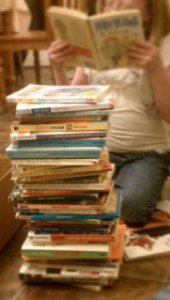
The Go Ahead pile after library sales can reach epic proportions, like this one from several years ago.
It’s a strange thing to be a lover of words and go from staunchly defending the right for anyone to read whatever book they want to read to being the gatekeeper, deciding which stories will be absorbed by a blossoming soul entrusted to my care.
I remember a particularly entertaining trip to the library when my son was three. I picked up a book about a werewolf who desperately wants to eat the love of his life. “Do you think that’s appropriate, Mama?” he asked me, pointing to the cover of the full moon and bare-chested teenage wolfboy.
I put it in my bag and shooed Pint-sized Judgy McJudge-A-Lot to the children’s section. “What about this one?” I asked him. “It’s DIARY OF A WORM”
He nodded to himself. “Worm diarrhea. Yeah, I’d like to know about that.”
That book went in the bag, too.
And so began our sliding scale of what is appropriate reading material.
Flash forward a few years, and my daughter has aced her reading level test in fourth grade. “I’m a Z!” she proclaimed, referring to the letter-assignment exams that, in a few minutes, measure a child’s reading comprehension and acuity. “My teacher said the entire library is open to me now!”
And of course it is. But I’m still going to divvy up the books.
Because that’s my job—talking with my child about the themes in a book, discussing what we would do in the protagonist’s shoes, imagining a different ending when things go wrong (and they always go wrong). That’s my job.
My. Job.
Not yours. Not my minister’s. Not the PTO’s. Not the school board’s. Not the government’s. I’ve got this one, thanks.
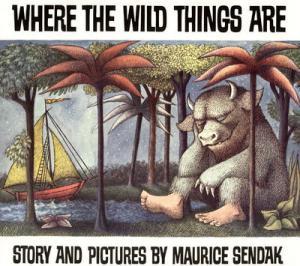
HarperCollins, 25th Anniversary Edition, December 2012.
I recently looked through a list of controversial or banned books, and smiled a little, realizing how many I read to my children. How we both learned so much in the process. How those moments—tucked under the same quilt, small head resting on my chest, breathing in unison as I read aloud—were my best as a mother.
WHERE THE WILD THINGS ARE taught us that some times our own anger is monstrous.
CHARLOTTE’S WEB taught us that friends find extraordinary strength for each other.
THE GIVER showed us the beauty in pain.
A WRINKLE IN TIME proved the power of individuality.
THE BRIDGE TO TERABITHIA taught us that childhood is sacred.
Yet that day, when my daughter became a Z, I took a book out of her hands. She had darted up the stairs to our bookcases and pulled SPEAK by (my hero) Laurie Halse Anderson from the shelf.
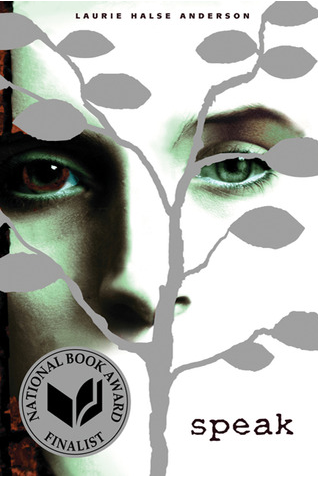
Squarefish, Reprint Edition, May 2011.
I put it right back. Now listen, SPEAK is a magnificent book, an important book that changed my life. Everyone should read this book. I mean it.
But everyone should read it when they’re ready to read it. And she wasn’t ready. Yet.
So how is a parent to know when a book belongs in the Not Yet pile? It’s pretty simple actually. My son’s second-grade teacher framed it best: “If he can talk about it, he can read about it.” And she wasn’t ready to talk about it. Some young readers would’ve been fine. She’s wouldn’t have been. Yet.
The themes in SPEAK—about trauma and secrets—would’ve blistered my girl if she read it too soon. Or worse, she wouldn’t have understood it. Her arms wouldn’t have erupted with goosebumps when Melinda found her voice. The story would’ve been about rape to her, not about empowerment. Not about recovery. The opportunity for empathy and growth would’ve been swindled from us both.
Trust me, I’d much prefer my children’s exposure to tough ideas and injustices be through a book that can be put down and pondered and returned to rather than the visual onslaught of a movie or—worst of all—actual experience.
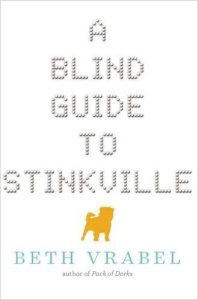
Sky Pony Press, October 2015.
As a writer, it’s painful—actually painful—to deny a book to my children. I vehemently and ardently believe that age ranges on jackets are suggestions, not orders. I bristle at stories I’ve heard of teachers forcing kids to finish books they don’t like because the titles were deemed “just right” for them. I can’t imagine a faster, more thorough way to squash a love of reading.
But as a mother? I have to protect their developing minds. And some content? It’s just not appropriate. Yet.
This spring—more than a year and many discussions after pulling SPEAK from my daughter’s hands, I slid the book off the shelf and handed it to my daughter. She read it in a day and a half.
Her takeaway from Melinda’s story? “Not talking about what happened to her didn’t help her at all.” (Dear Lord, please, please, please, don’t ever let my baby live through Melinda’s story. But do let her learn from that book. Do keep her talking.)
I make a lot of mistakes as a parent. I’m the mom who forgets to bring a water bottle to soccer practice. I blanked on the recorder concert (total accident, I swear). I yell more than I should and spend too much time picking apart what needs to improve instead of celebrating what’s glistening in front of me. I rely on my village.
But when it comes to what my child is reading? I’ve got this.
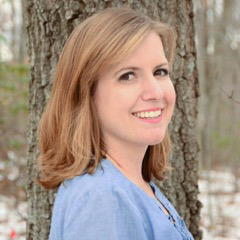
Beth Vrabel.
Beth Vrabel grew up in a small town in Pennsylvania. She won a short-story contest in fourth grade and promptly decided writing was what she was going to do with her life. Although her other plans—becoming a wolf biologist, a Yellowstone National Park ranger, and a professional roller skater—didn’t come to fruition, she stuck with the writing. After graduating from Pennsylvania State University with a degree in journalism, she moved through the ranks of a local newspaper to become editor of two regional magazines and a lifestyle columnist. She is the author of PACK OF DORKS (Sky Pony Press, 2014) and A BLIND GUIDE TO STINKVILLE (Sky Pony Press, 2015). Beth lives with her wonderful husband, two charming children, a spoiled rotten puppy, and Frodo the guinea pig in Canton, Connecticut.








